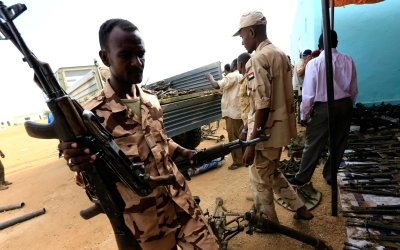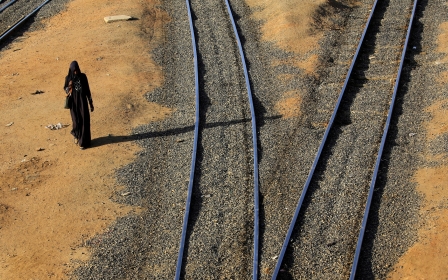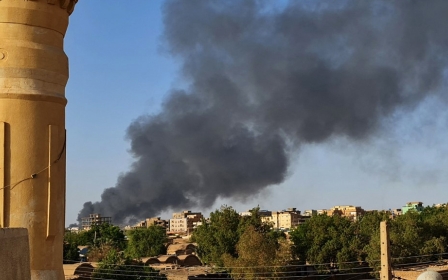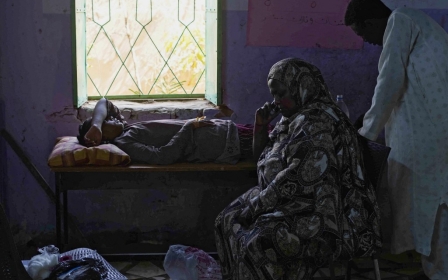Sudan: Darfur governor calls on civilians to take up arms, risking violent escalation
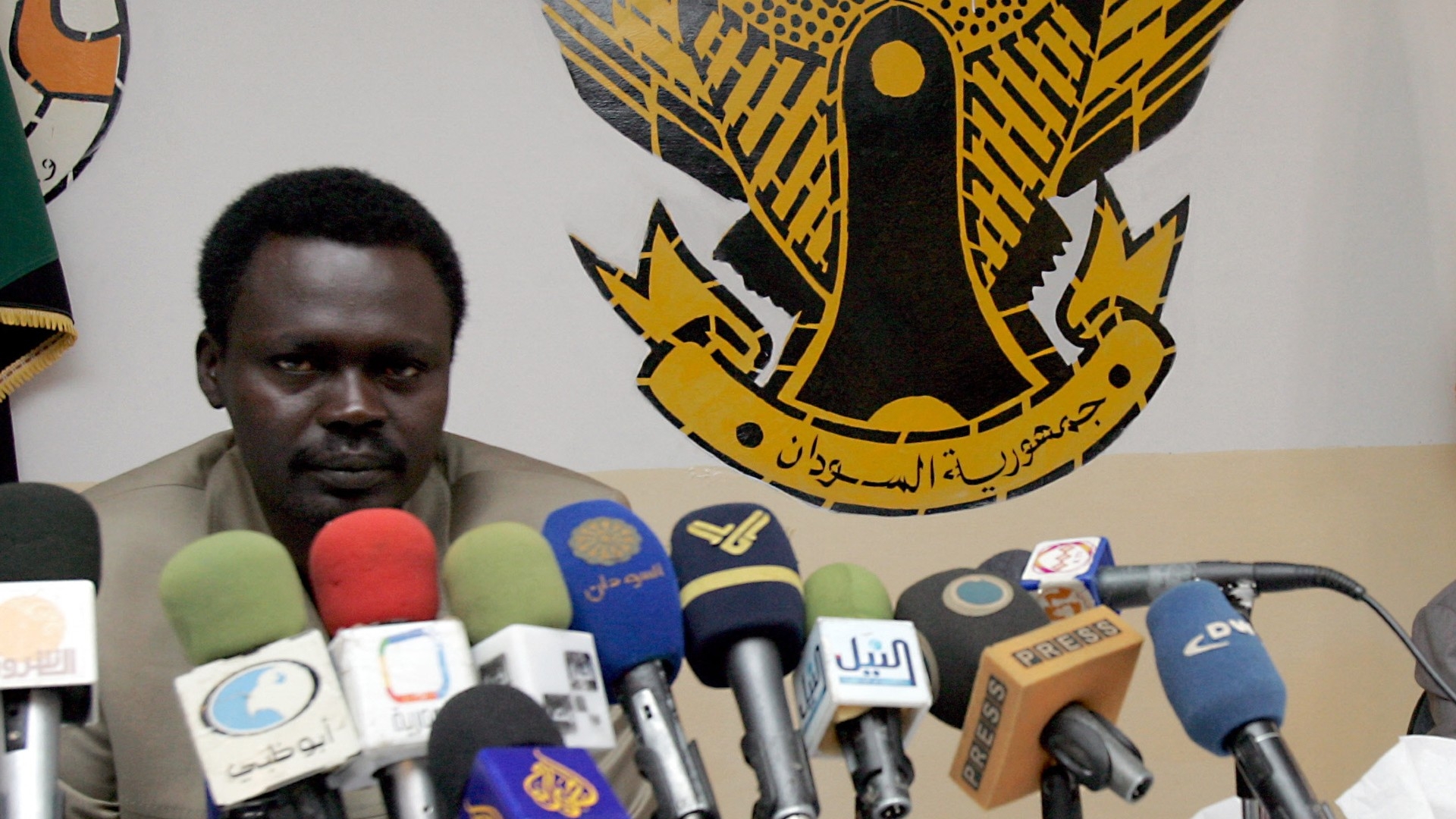
Darfur, Sudan's western region that knows the consequences of war and conflict all too well, could be set for yet a further escalation of violence.
Minni Minnawi, a warlord turned governor of Darfur, has suggested that civilians need to arm themselves, as fighting between Sudan's warring factions intensifies in the western region.
"I call on all our honourable citizens, the people of Darfur, old and young, women and men, to take up arms to protect their property," Minawi tweeted on Sunday, adding that those who did so would be supported in their defence by his armed faction.
Conflict broke out last month between the Rapid Support Forces (RSF), headed by Mohamed Hamdan Dagalo, and Sudan's army, led by General Abdel Fattah al-Burhan, after disputes over plans for the paramilitary to be integrated into the army.
Darfur has seen some of the deadliest violence since fighting began, with around 1,000 people believed to have been killed in the region.
New MEE newsletter: Jerusalem Dispatch
Sign up to get the latest insights and analysis on Israel-Palestine, alongside Turkey Unpacked and other MEE newsletters
Minnawi has been accused of adding fuel to the fire with his recent remarks.
"I understand the call for people to defend themselves. We have seen this play out in Ukraine. But Darfur is not Ukraine," Cameron Hudson, a former CIA analyst and senior associate at the CSIS Africa Program, told Middle East Eye.
"There is no movement to train and arm Darfuri civilians. Armed civilians will only increase the bloodshed, draw more militias into the violence and complicate any potential solution."
He added that civilians should instead seek safety in neighbouring Chad or other safe areas, and accused Minnawi of "putting his people at further risk".
Teacher-turned-warlord and governor
Minnawi, a former primary school teacher, made a significant career change in the early 2000s.
With no previous military experience, he became the leader of the largest faction in the Sudanese Liberation Movement, a major Darfuri rebel group.
Meanwhile, Dagalo, commonly known as Hemeti, who was also raised in Darfur, led one of the largest Janjaweed militias. They were deployed by Khartoum in 2003 to fight against rebels in the area.
The government campaign in Darfur killed at least 200,000 people, according to the UN.
In 2006, after signing a peace agreement with then president Omar al-Bashir's government, Minnawi became the most senior Sudanese official in the region.
But his faction withdrew from the agreement in 2010, as sporadic violence continued.
Another pact, known as the Juba Peace Agreement, of which Minnawi was a signatory, was signed in 2020 to achieve stability across the country. He became governor of Darfur a year later.
Following the backlash from his call to arm civilians, Minnawi on Tuesday posted a lengthy statement from Sudan's Minerals Minister Mohamed Bashir Abunammu defending him.
In the statement, Abunammu said Minnawi was promoting self-defence, which he suggested was "legitimate by instinct, religion and international law".
"The peace and security of the people of Darfur depends on creating a... balance of deterrent force," he said, citing the examples of American gun ownership and global nuclear deterrence.
He claimed that US states that allowed firearm possession had the lowest crime rates, and that the White House and Kremlin owning nuclear weapons created a "balance of power".
'Darfur is not Ukraine. There is no movement to train and arm Darfuri civilians'
- Cameron Hudson, former CIA analyst
A spokesperson for Sudan's Forces of Freedom and Change (FFC), a wide coalition advocating for a transition to democracy, condemned the call to arms.
"These statements represent a perilous leap towards an all-consuming civil war," Hussam Abu al-Fatah, spokesperson for the FFC and a member of its media committee, told MEE.
Abu al-Fatah said a resolution to the conflict only lay in "unwavering political negotiations" involving all military factions and civilian actors.
Minnawi blames FFC for war
Two years ago, Hemeti lent his support to Burhan, as the latter carried out a military coup against the then transitional military-civilian government that emerged from the overthrow of longtime autocrat Omar al-Bashir in 2019.
But the uneasy alliance has since ended and conflict has broken out over disagreements about how to implement a US-sponsored framework deal towards a purely civilian transitional government.
Minnawi, who backed the 2021 coup, has said he is neutral in the current fighting. But analysts told MEE last week that he had joined the Sudanese army to form an "anti-Hemeti coalition".
A local tribal leader told MEE earlier this month that forces answerable to Minnawi had been deployed in al-Fasher, the capital of North Darfur, as a buffer between the warring sides.
'Minnawi and his colleagues have embraced the rhetoric of the now-defunct regime, deliberately sowing chaos'
- Hussam Abu al-Fatah, FFC spokesperson
On Sunday, Minnawi blamed pro-democracy activists for causing the war.
"The people of the Central Council, with their framework agreement, plunged Sudan and the region into the war," he said, referring to the main political body within the FFC.
Abu al-Fatah described Minnawi's assertions as a "baseless and untrue" attempt to "manipulate history".
"The accusation levelled against us, holding us responsible for the war, is a distortion of historical facts. In truth, we have actively worked to prevent conflict," he told MEE.
He said the framework agreement was specifically created to counteract militarism and "quell the escalation of hostility and enmity".
"However, Mr Minnawi and his colleagues have embraced the rhetoric of the now-defunct [Bashir] regime, deliberately sowing chaos and devastation."
Hudson said Minnawi's comments showed that the FFC was "a threat to him and his future", and that his public neutrality was motivated by self-preservation.
"Minni is not a statesman. He is a businessman," Hudson said. "He is only motivated by his personal position. He will ultimately side with whichever faction can guarantee him a political future and financial well-being."
Middle East Eye delivers independent and unrivalled coverage and analysis of the Middle East, North Africa and beyond. To learn more about republishing this content and the associated fees, please fill out this form. More about MEE can be found here.


